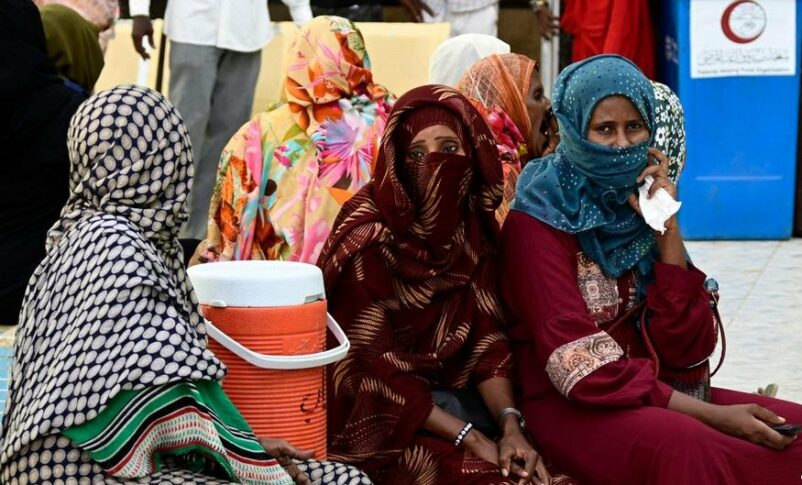The number of internally displaced persons (IDPs) in Sudan has dropped by nearly 1.65 million since January 2025, according to a new report from the UN’s International Organization for Migration (IOM). The decline is largely due to thousands of people returning to their homes despite the ongoing war.
As of late July 2025, an estimated 9,937,444 people remain displaced across all 18 states of Sudan. This marks a significant reduction from the peak of approximately 11.5 million IDPs recorded in January.
Kassala, Red Sea, and River Nile states have experienced the largest decreases in their displaced populations, with declines of 20%, 14%, and 11% respectively. Many of those who had sought refuge in these eastern states have returned to their home regions, particularly Khartoum, Al Jazirah, and Sennar.
However, the decline in IDPs does not reflect an end to the conflict. Fighting continues to displace civilians, particularly in Darfur, where the war has been fierce. In North Darfur, clashes in Al Fasher have caused repeated waves of displacement, forcing residents to flee to other parts of the Darfur states.
Since the outbreak of conflict in April 2023, more than 7.5 million people have been newly displaced within Sudan. The highest number of IDPs originates from Khartoum (31%), followed by South Darfur (21%) and North Darfur (20%). Nearly half of the displaced households, around 47%, are living with host families.
Conflict Continues To Drive Humanitarian Crisis
Sudan’s displacement crisis is also linked to cross-border movements. Since January 2024, about 272,361 people have returned to Sudan from Egypt. Yet, the broader picture shows that more than 4.2 million Sudanese have fled to neighbouring countries, including Chad, South Sudan, and Egypt, since the war began.
On the battlefield, violence is intensifying. Local sources reported that Sudan’s Rapid Support Forces (RSF) advanced deeper into Abu Shouk displacement camp in El Fasher on Monday. The camp, home to approximately 190,000 people, has become a new flashpoint in the battle for control of North Darfur’s capital.
According to witnesses, the RSF now controls about half of the Abu Shouk camp. Reports allege that fighters forcibly displaced residents, looted homes, and abducted around 30 civilians, including women and children.

The fighting has brought RSF units closer to strategic army positions in El Fasher, including the airport and artillery headquarters. An RSF commander told Sudan Tribune that his forces were advancing on three fronts to capture the army’s 6th Infantry Division headquarters at the city centre. He added that battles were ongoing near El Fasher International Airport and against artillery units in the west.
But a spokesman for the joint armed groups fighting alongside the Sudanese army rejected claims of RSF gains.
“El Fasher is fine, and the army and the joint force are steadfast,” spokesman Ahmed Hussein Mustafa told Sudan Tribune. “They have repelled all recent attacks and forced the Rapid Support to retreat.”
Mustafa accused the RSF of unleashing the heaviest bombardment of the war over the last 10 days, with 700 to 1,000 shells falling daily across El Fasher. He claimed the attacks caused thousands of civilian casualties. He also said the RSF was using drones and heavy shelling to conceal failed ground advances.
The humanitarian situation in El Fasher has grown desperate. On Monday, the World Health Organization (WHO) condemned an attack on El Fasher South Hospital that killed one person and injured seven.
Residents told Sudan Tribune that they are now grinding animal fodder and mixing it with limited sorghum flour to survive. Food prices have reached catastrophic levels: a sack of sorghum costs 9 million Sudanese pounds (about $3,000), while a sack of fodder sells for 160,000 pounds (about $53). A kilogram of rice or wheat flour now costs 160,000 pounds, and a small 300-gram pack of pasta costs around 30,000 pounds (approximately $10).
Although the overall number of displaced persons in Sudan has fallen, the conflict remains relentless. The fighting in Darfur, particularly in El Fasher, underscores that millions are still caught between displacement, hunger, and violence as the war drags on.
READ ALSO: Civilian-Led Helicopter Crash Investigation Gains Support



















